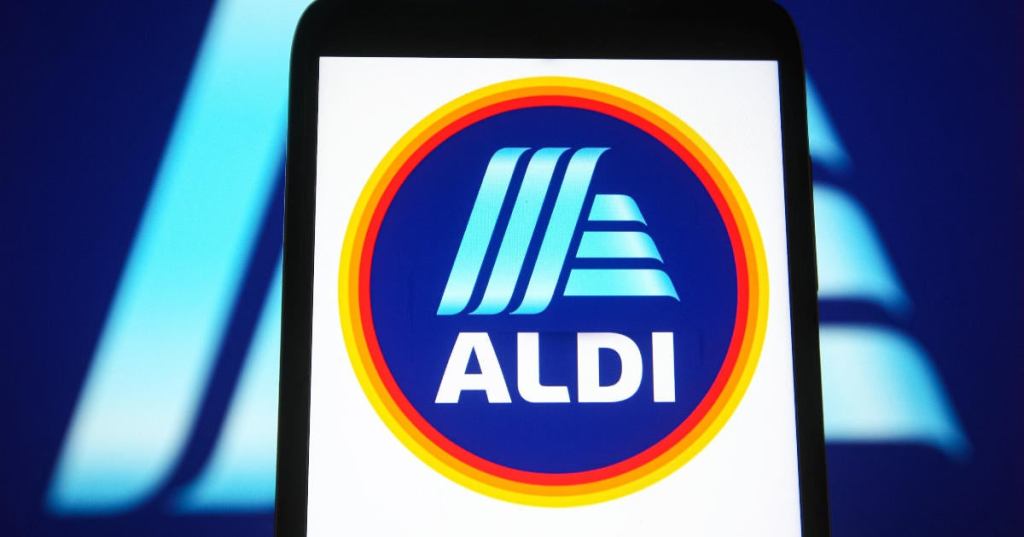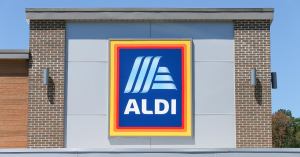As global inflation causes grocery bills to skyrocket worldwide, Aldi is hoping to find a way to help customers save a few bucks. The budget supermarket chain is currently testing a Too Good To Go scheme, a new partnership that will not only see customers saving some massive bucks, but also tackles food waste.
Under the scheme, which arose from a partnership with the surplus food app of the same name, products that are damaged or approaching their sell-by date are bundled up into “magic bags,” according to The Sun. The exact contents of the bags are a surprise until the customer picks them up, though each bag contains at least £10, or roughly $12, worth of groceries, ranging from meat to produce. However, the customer pays far lower than that, with each “magic bag” coming with a price tag of just £3.30, or about $4, which is paid via the Too Good To Go app.
Videos by PopCulture.com
“Tackling food waste has never been more important, both for the sake of the planet and to support people looking for the best possible value on their groceries,” Liz Fox, Corporate Responsibility Director at Aldi UK, said. “This trial will show us whether Too Good To Go can help us make better use of food that is nearing the end of its life while also giving customers the chance to enjoy our products at even more amazing prices than usual.”
The Too Good To Go scheme, part of the supermarket’s effort to cut food waste by 20% by 2025 and halve it by 2030, is currently just in a trial phase. The trial began on July 25 and is set to run for a total of five weeks. Unfortunately for Aldi shoppers in the U.S., the Too Good To Go trial is currently only taking place at seven stores across the North East of England. It is unclear if the company plans to roll out the scheme in all of its markets if the trial proves a success. Aldi is just the latest company to partner with Too Good To Go, with Starbucks and Greggs, among others, already partnered with the app.
The trial not only coincides with Aldi’s ongoing effort to cut food waste, but also with rising grocery store prices. The cost of food items has impacted consumers across the globe and has not solely affected grocery bills. Inflation has also been reflected in fast food receipts, with McDonald’s UK raising the price of its famous cheeseburger from 99 pence (or $1.19) to £1.19 (or about $1.44). In the U.S., the fast food restaurant chain gave franchisees the go-ahead to ditch the fan-favorite $1 drink option, with several other fast food chains also making menu changes to reflect the rising prices caused by inflation.





